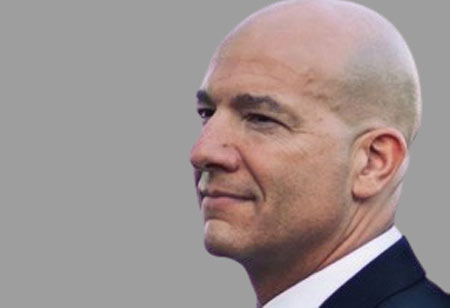

I agree We use cookies on this website to enhance your user experience. By clicking any link on this page you are giving your consent for us to set cookies. More info
Thank you for Subscribing to Business Management Review Weekly Brief

As The Svp Global Security – Chief Security Officer At News Corp, What, According To You, Are The Major Factors That Play A Key Role In Enforcing Security Measures In An Apprehensive World?
First of all, transparency is an absolute must, not only in public safety, but in corporate security as well. Unfortunately, politics often gets in the way of what should be communicated and in the absence of transparency speculation and ultimately fear takes over. In many cities throughout the world there have been increases in homelessness, mental illness and drug and alcohol dependency. These result in increases in crimes which then foment those concerned with returning to in office work mode. The employment of technologies such as CCTV and communications through alerts and bulletins are great but I believe there is a need for more holistic approach that couples intervention with MHPs, clinical support as well as enforcement of petty crimes.
What Is Your Opinion On The Long-Term Impact Of Such Technology Advances In The Law Enforcement Space?
I believe we will see much more applications of these types in the corporate and public safety arena. They can and will certainly be force multipliers and may lead to more efficient security. I do not, however, believe that AI, drones and robotics will take the place of human security personnel. The technology is just not quite there and will not likely be there in the next twenty years or so. We will always need a compassionate, human touch; a decision maker and controller that can see beyond the technical or concrete-sequential machine thinking and put things into human perspective. This is especially so in aviation, intelligence, explosives detection and other areas.
You cannot learn by isolating yourself or your unit. seek out opportunities to have information exchanges, joint exercises or activities where you can enhance your unit and your own capabilities
What, According To You, Are Some Of The New Innovations In The Field Of Law Enforcement That Can Help Businesses Better Protect Themselves Against Thefts, Attacks, And Other Hindrances?
I am really keenly interested in how AI can detect weapons and identify threat through behavior. This is an area where humans often have a “blind spot” and, as mentioned, it is not an absolute; we still need to have a human monitor, review, assess and then decide on what measures to undertake. There are a number of companies studying smart weapons that recognize the user’s biometrics avoiding unauthorized use of firearms. There are others that employ predictive analytics to determine potentially threatening actions or behaviors and alert to same. AI incorporated with CCTV, access control systems and alarms can be phenomenal early warning systems. I’d also like to see geo capable fencing and monitoring that immediately alerts when there is a critical incident or impending natural disaster. The issue is that we cannot have erroneous or constant alerts that would dilute the receiver’s believing in messages during a real emergency. Again, the IoT and all these AI and technical capabilities are great but as security practitioners we should never be omnireliant on technology. Having contingency plans and getting back to analog or paper and pen during drills or exercises is very important in order to prepare for potential systems errors or failures.
Before Your Stint At News Corp, What Are Some Of Your Experiences That Empowered You To Gain Deep Expertise In Physical Security, Investigations, Incident Management, Health And Life Safety, Protective Operations And Support, And Other Aspects Of The Ever-Evolving Law Enforcement Landscape?
I was very fortunate to have been able to serve in the military and in law enforcement dividing my time in both on active and reserve service over the course of nearly 35 years. My work in military special operations and police SWAT-Tactical operations afforded me with some pretty strong insights on operating autonomously in small teams, pre-planning, training and exercising options and working in challenging environments, often with minimal support or resources. This really lent itself to my being able to work globally in emerging nations or in areas with less than ample support. Additionally I had the benefit of working in a number of special assignments in investigative units, foreign liaison activities and in embassies where the cross-cultural and diplomatic touch is paramount. I would definitely state that having these opportunities forged my experiences and really opened my eyes to how other nations, other forces and other companies tackle similar problems. Working in and with major corporations or with elite units is great but I have really gained more from my travels and seeing some less prominent organizations and the challenges they ensure. It has been and continues to be a huge learning experience and I love it!
On An Ending Note, What Is Your Advice For Other Senior Leaders And Cxos Working In The Law Enforcement Sector?
I believe we need to lead from the front, get out with their people and participate, in person, on threat and risk assessments, training operations, events, anything to be with their teams as often as possible. Get the ground truth, know what your folks are seeing, what are the pain points, if any, and liaise often with other business units and organizations. You cannot learn by isolating yourself or your unit. Seek out opportunities to have information exchanges, joint exercises or activities where you can enhance your unit and your own capabilities. Don’t be afraid to share your shortcomings and your successes. Be active and participate in professional organizations such as ISMA, ASIS, OSAC, and DSAC. Be open to change, be adaptable, ethical, flexible, and professional.